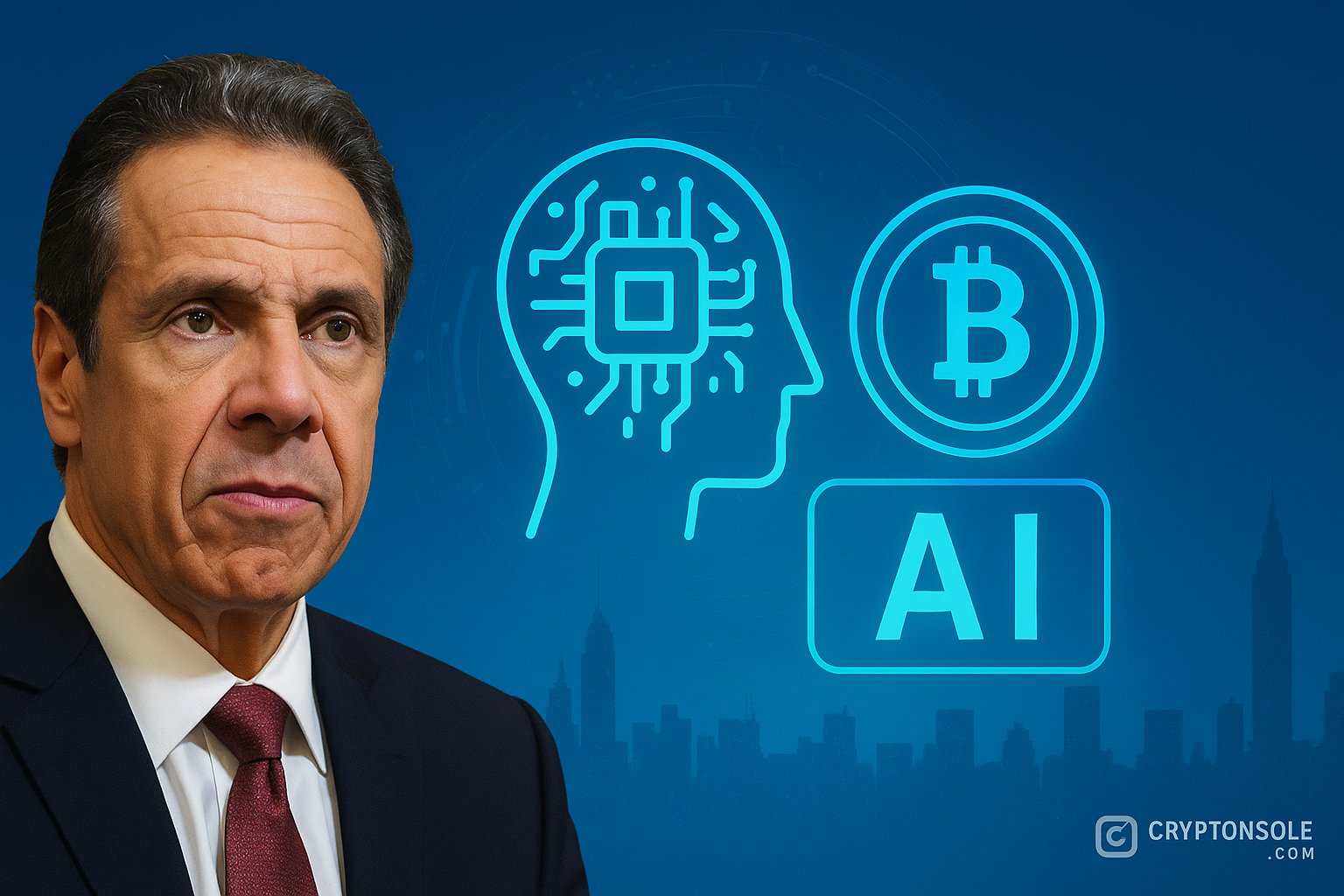Former Governor Andrew Cuomo, now running for Mayor of New York City, has revealed plans to establish a Chief Innovation Officer (CIO) role within the city government as part of his tech-forward vision. The initiative aims to position NYC as a global anchor for blockchain, artificial intelligence (AI), and biotech industries.
What the proposal entails
According to reporting by Cointelegraph and other outlets, Cuomo’s plan would include the following components:
- The creation of a Chief Innovation Officer role tasked1 with overseeing technology-driven initiatives across city agencies.
- Formation of an Innovation Council comprising three advisory committees: one each focused on crypto/blockchain, AI, and biotechnology. These committees would address adoption strategies, workforce development, and regulatory streamlining.
- Strategic positioning of NYC to attract more investment, talent, and enterprise in emerging technologies — especially in the intersection of finance, tech and innovation.
Why it matters for NYC
- Tech & economic growth: By focusing on blockchain and AI, the proposal is intended0 to leverage NYC’s existing financial-services infrastructure and talent pool, pushing the city to the forefront of the next generation of technology sectors.
- Regulatory shift: The plan signals a potential pivot in NYC’s approach to digital assets — from primarily regulatory enforcement toward promoting innovation and industry growth. Cointelegraph noted that under Cuomo, the city “could shift from a regime characterised by enforcement to one that attracts and retains more industry talent.”
- Job creation & talent retention: Establishing a dedicated1 innovation leadership role and advisory structure may help retain tech talent, foster startups and attract global companies to base operations or partnerships in NYC.
Risks and challenges
- Execution & oversight: Creating a new high-level CIO role and advisory structure sounds bold, but meaningful3 results will depend on effective execution, adequate resources and coordination across multiple city agencies.
- Political & public scrutiny: As a mayoral candidate, Cuomo’s past and industry ties may draw scrutiny. For example, his advisory role with crypto exchange OKX during its federal investigation has been noted by news outlets.
- Balancing innovation with regulation: While promoting crypto and AI innovation is attractive, it must be balanced with consumer protection, anti-fraud measures and regulatory clarity — particularly in the crypto space that remains volatile and under regulatory flux.
- Competition: Other cities worldwide are also vying to become crypto and AI hubs. Achieving a meaningful competitive edge will require more than slogans — it will need infrastructure, partnerships, clarity and business incentives.
What to watch next
- Whether Cuomo publishes a full policy document detailing the CIO role’s mandate, funding, timeline and deliverables.
- How other mayoral6 candidates respond — will they propose similar tech-innovation structures or counter with differing visions?
- Reactions from the crypto, AI and biotech industries: whether companies view this as a credible commitment and whether they express interest in relocating or collaborating with NYC.
- Early indicators of impact: for example, announcements of new partnerships, investments, incubators or workforce-training programs tied to blockchain/AI in NYC.
Bottom line
Andrew Cuomo’s proposal to establish a Chief Innovation Officer role in New York City underscores a significant shift in ambitions: aiming to make the city a global hub for blockchain, AI and biotech. If implemented effectively, it could reshape NYC’s tech landscape and attract new investment and talent. However, the initiative’s success will hinge on execution, cross-agency coordination and maintaining regulatory credibility in these fast-evolving sectors.
FYBFE6FZ












